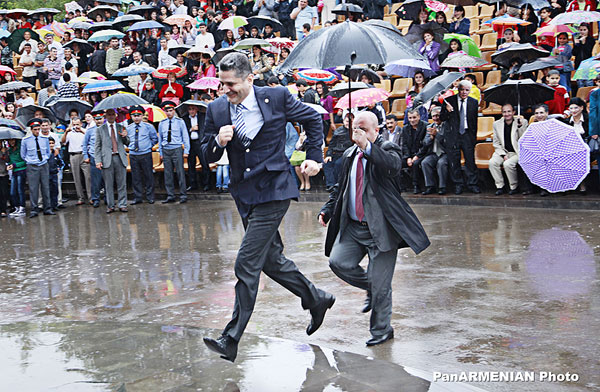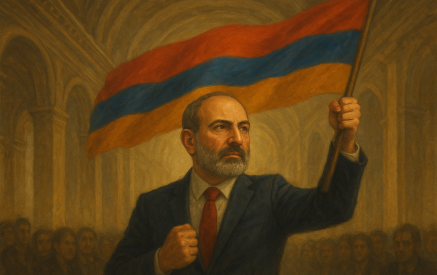In Armenia and, I suppose, in many other countries, anything you write or say, you will not play into into anyone’s hands. Should you write something good about the Prime Minister, it will turn out that you justify the awkward economic policy. Should you write something bad, it will turn out that you serve for oligarchy interests of constantly strained relations with him. The issue of the Prime Minister is interesting, not only of this Prime Minister, but also, in principle, of all governments of Armenia. Because of deficiencies of our political system, to say the least, the Prime Minister may have two of the so-called “existential forms”. Either, he is a suitable target to whom each passerby may hit based on inter-clan considerations and trying to look opposition or semi-opposition. Or, having a real power and support of the elite class, he becomes a potential source for a palace coup. The first case is now, and it (to this respect I agree with Deputy Nicole Pashinyan) is extremely beneficial situation for the President. This is what usually happened in the history of independent Armenia.
For example, Hrant Bagratian had, in general, the ANM support, but Vazgen Sargsyan and Vano Siradeghyan were actively fighting against him, which for several years was creating a certain tension, on the other hand, equilibrium and stability. There are only two opposite examples. The first on was the Prime Minister Robert Kocharian, who was able to quickly mobilize political and economic elite around him, and stage a coup in several months. The second example is Aram Z. Sargsyan, who also had a chance to (the President of that time Robert Kocharyan was insisting that he is only an “observer “), but he did not have experience for palace intrigues, and perhaps, a desire to carry out a coup.
On May 2000, after a few months of uncertainty, the President Kocharyan could be able to hold the Republican Party “in leash”, to temp Manvel Seyranyan with positions, and possibly, with businesses, and to restore the status quo with a weak Prime Minister and infinite presidential power. Which model is more effective? From type of stability the one that is today, but mostly, none. The government, yes, should give an answer for its failed programs, for abuses in different areas reaching millions, for recoils and for remaining deformities. But it should give an answer not at that time when the oligarchy wants it, but constantly, every minute. And to this effect we need to, particularly, have a strong parliament, a strong one, and not consisted of “strong guys”. These are two different things.
Read also
Aram ABRAHAMYAN

























































